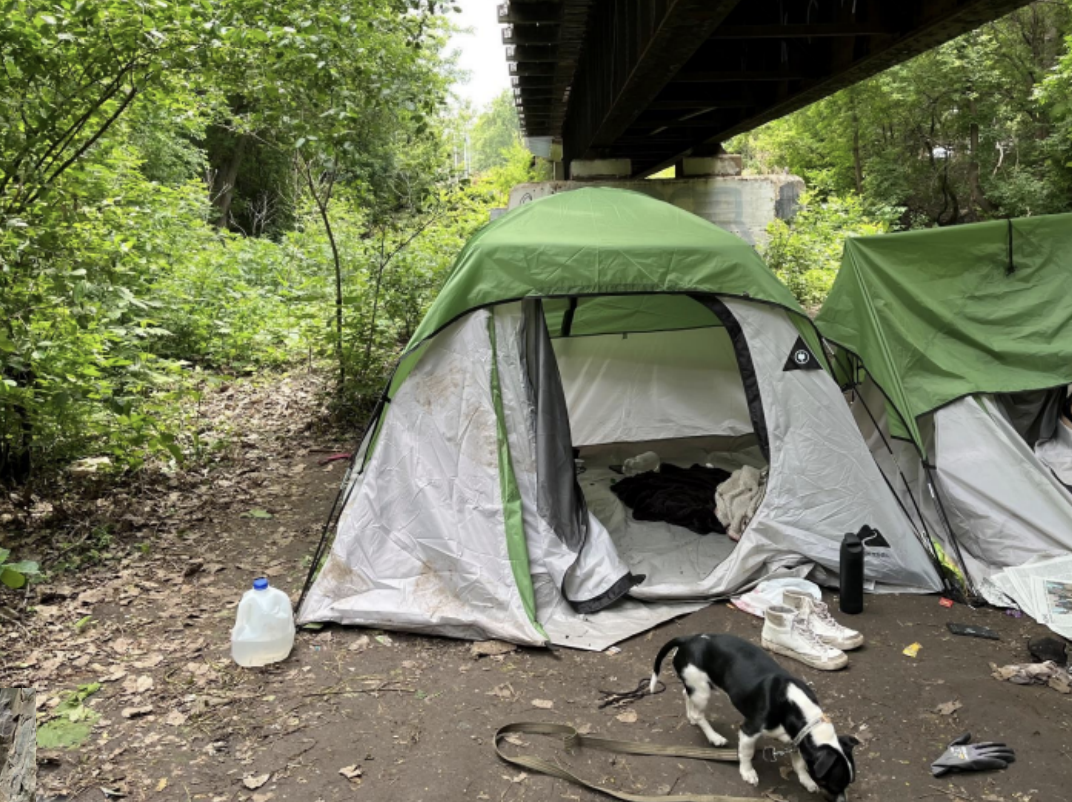Simplified: The Sioux Falls City Council voted to significantly change a proposal to crack down on encampments. The changes add a bit more "complexity," as Councilor Rich Merkouris put it, by requiring the city to take steps to connect unhoused folks with local service providers before taking down any temporary shelters.
Why it matters
- The proposed ordinance passed first reading last week after about an hour of public testimony, largely asking the council not to pass something that could make life harder for people without permanent housing.
- The amended ordinance requires the city to make an effort to connect the person living in the temporary shelter with a local service provider. It also stipulates that police coordinate storage for any personal items found in encampments for at least 30 days.
- Tuesday's discussion also prompted an hour and a half of public input from more than two dozen individuals, as well as an emotional council discussion in which Merkouris shared his own experiences as a law enforcement chaplain who presided over a few funerals for people who died while experiencing homelessness.
"This is personal for me," Merkouris said. "This is why I ran for city council, was the issue of homelessness."
Tell me more
Merkouris worked closely with the city's Homelessness Coordinator Michelle Treasure, as well as District 15 Rep. Kadyn Wittman, to draft the amendment.
- The goal was to essentially put down in writing what Merkouris said police are already doing in terms of working to connect people with existing services and giving people a chance to take personal items.
The specific changes added legal definitions for "personal property" and "service provider." Additionally, changes state the prohibition on encampments cannot be enforced unless police do the following:
- make an effort to connect the person living in the temporary structure with a service provider,
- post a notice giving folks 24 hours to take action if the shelter is found uninhabited,
- require the city to coordinate storage for any personal property.
"These amendments tonight are meant to reflect the complexity of the situation and put processes in place to ensure that personalities in very difficult situations ultimately are driven by a community process rather than a personality," Merkouris said.
Even with the proposed amendment, the ordinance faced pushback from the public – including people with lived experiences and service providers like Dr. Shannon Emry with Midwest Street Medicine.
"The people we’re talking about are not only chronically sick and struggling to survive," Emry said, "but are also constantly made to feel invisible or are treated like lepers ... Based on the way the mayor has spoken about homelessness and the ordinances he's proposed, it seems the unspoken goal is for our homeless neighbors to simply disappear from public view so the city looks more shiny and polished."
What happens next?
Typically, an ordinance would formally pass during a second reading, but due to the changes added Tuesday night, the council will have to have yet another discussion about the ordinance before offering a final vote. That's expected to happen at the council's next meeting on Tuesday, Aug. 19.


